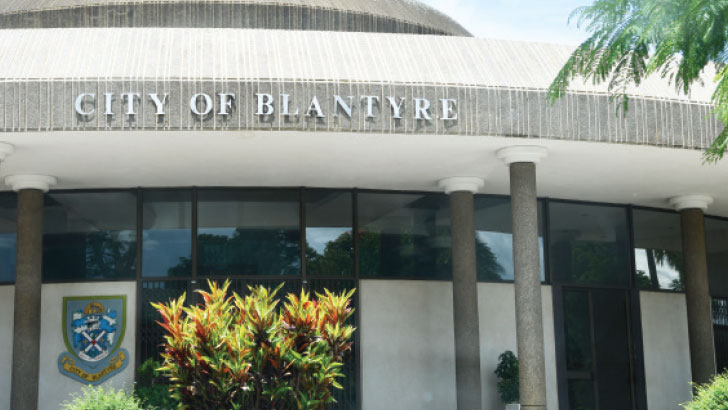Councils no pushovers
The Malawi Local Government Association (Malga) assessment have found the Tonse Alliance’s one year in power wanting when it comes to entrenching decentralisation, commonly understood as shedding power to the people. According to Malga executive director Hadrod Mkandawire, the Lazarus Chakwera adminstration, like its predecessors, keeps interfering with the operations of councils instead of devolving power to local governments. Our Staff Writer SUZGO CHITETE catches up with him.

Q: What has changed in the councils since the Tonse Alliance took over?
The biggest benefit so far is that this administration has been listening to some of our concerns and act on them. We have also seen unprecedented application of brakes on unwarranted and frequent transferring of local governments’ staff from one council to another. This includes a slowdown on the transfers of controlling officers such as district commissioners and chief executive officers. Further, Malga commends the Tonse Alliance for significantly raising the allocation for city roads in the 2021/22 national budget as requested.
However, our our plea to extend this allocation to municipal councils has not been considered. Furthermore, we commend the new regime for heeding our call to provide a bailout to the constrained local government councils. We will be waiting for implementation of the bailout package.
Q: Implementing the decentralisation policy in totality has been an issue since 1998, how do you gauge the Tonse regime’s political will towards this?
We commend the new government for enhancing meaningful and frequent policy and decision-making dialogue with Malga on local governance and decentralisation. They also meaningfully engaged us in the Local Government Amendment Bill 2020 processes. Further, we strongly commend the governing alliance for rolling out the review of the Decentralisation Policy of 1998, which was overdue. Malga is delighted with these developments and the posture displayed by ministries of Local Government and Finance for displaying unprecedented commitment towards improving the fortunes of local governments during the year under review. Going forward, we expect this commitment and posture to result into meaningful action because, as they say, the proof of the pudding is in the eating.
Q: You have been complaining of interference in councils’ operations, is the new government any different?
This behaviour, sadly, has continued in great measure during the first year of the new regime. The central government continues to treat local governments as its departments or development agencies, not development actors in their own right. Some actors at Capital Hill continue to deliberately disenfranchise local governments for their own personal convenience and gratification. Malga noted that during the year under review, the central government continued to disregard local councils as ‘development actors’ in their own right despite legal and policy framework providing so. Malga would like to inform the Tonse-led government that local governments cannot reform and be vibrant with the current political environment in which they operate.
Q: Central government is worried with pilferage and abuse of funds in local councils. How do you explain such scandals as the K138 million salary syndicate uncovered in Ntchisi?
Our councils are not immune to corruption, theft and abuse of public resources as is the case with all other public institutions, including the central government itself. However, what needs to be understood in the so-called Ntchisi case is the theft and fraud did not necessarily take place at Ntchisi District Council. Without prejudicing the ongoing investigations, what we have gathered is that the payroll for Ntchisi District Council was clean, but the suspected employees were allegedly conniving with some people at Department of Human Resource Management and Development to manipulate the master payroll that remains at the centre to steal from the government. So, the funds in question were not necessarily stolen at Ntchisi District Council, but rather employees from Ntchisi allegedly conniving with employees at the centre to steal from account number one. Therefore, the issue is about the individual employees at the local and central levels beating the central government systems to steal public funds. To make a sweeping statement that there is gross corruption and theft of public resources in local councils based on the Ntchisi incident is totally not a true reflection of the reality on the ground.
It should also be noted that the revelation came after Ntchisi District Council management requested for a copy of the master payroll. When they discovered that there were discrepancies between their payroll and the master payroll, they swiftly alerted the relevant authorities. So, we need to commend them for this. It gives us hope that management of local councils are putting in place systems to address public finance mismanagement.
Q: With the corruption concerns, isn’t government’s reluctance to grant councils financial autonomy justified?
Almost daily, the media is awash with stories of theft and abuse of public funds in almost all public institutions, including institutions anchored by the Central Government. You have seen how billions of kwacha are reported to have been misappropriated at a number of public institutions at the central level. This informs you that the issue of corruption, theft and abuse of public resources is not confined to local councils alone as it has always been portrayed. Actually, local councils are much better than the central government and the recent audit into the K6.2 billion Covid-19 funds can testify to this. Yes, we agree there are a number of financial management challenges in the local councils that need to be addressed, but the councils are not as bad as they are being portrayed. Therefore, we find reluctance for full fiscal devolution on the pretext of corruption incidents in some local councils, as both misplaced and hypocritical.





